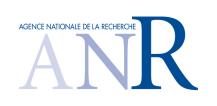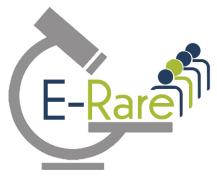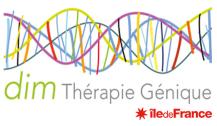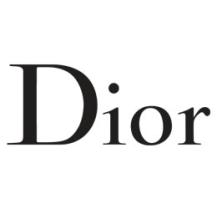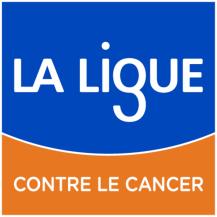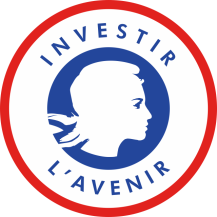Published on 01.07.2025
Presentation
The common denominator of our project is the human lymphohaematopoietic system, characterized by cells with differing self-renewal and differentiation capacities as a function of the individual's age and clinical status (i.e. healthy or diseased). In adult mammals, haematopoiesis (i.e. the expansion and differentiation of haematopoietic stem cells into blood cells in the bone marrow) undergoes constant, tightly regulated renewal and undergoes profound changes over the lifespan.
Understanding of the hierarchy of human haematopoiesis and the different steps in T and B cell differentiation in the healthy body and in very particular disease situations constitutes the most fundamental part of our research project. To lead our research, the human lymphohematopoiesis laboratory has access to a cohort of patients involved in phase I/II gene therapy clinical trials and also a cohort of patients with hereditary immune deficiencies associated with B cells. Overall, the knowledge generated by these studies will help us to actively implement new treatment protocols. Haematopoietic stem and progenitor cells (HSPCs) harvested from a healthy or diseased individual and ex vivo gene modifications constitute essential tools for curing most severe, cell-intrinsic, inherited defects of the lymphohaematopoietic system. Nevertheless, several issues still compromise the full success of these types of therapies.
Improvements in this HSPC-based strategy have resulted from progress and discoveries provided by the first part of our project and by other research groups. The most recent findings on the characteristics of human T cells (i.e. their long life, self-renewal capacity, homeostasis and functions) have prompted us and others to consider their in vivo use after ex vivo manipulation - paving the way for less toxic therapeutic approaches.
Team
-

-
 MarinaCavazzanaProfessor in Haematology, Head of the Biotherapy Department, Director of the Clinical Investigation Center for Innovative Therapies
MarinaCavazzanaProfessor in Haematology, Head of the Biotherapy Department, Director of the Clinical Investigation Center for Innovative Therapies -

-
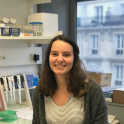
-
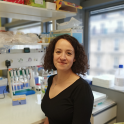
-
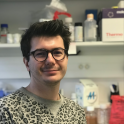
-

-
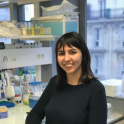
-

-

-

-
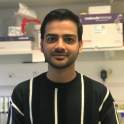
-

-

-
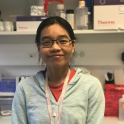
-
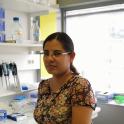
-

-

-

-

-
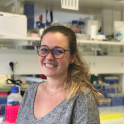
-
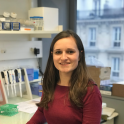
-
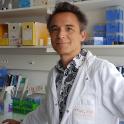
-
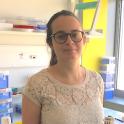
Resources & publications
-
 2020Journal (source)Haematologica
2020Journal (source)HaematologicaA gain-of-function RAC2 mutation is associated with bone-marrow hypoplasia an...
-
 2021Journal (source)Blood
2021Journal (source)BloodA combination of cyclophosphamide and interleukin-2 allows CD4+ T cells conve...
-
 2021Journal (source)Blood Adv
2021Journal (source)Blood AdvAdenylate kinase 2 expression and addiction in T-ALL.
-
 2017Journal (source)Blood
2017Journal (source)BloodReticular dysgenesis: international survey on clinical presentation, transpla...
-
 Journal (source)Mol Ther Methods Clin Dev
Journal (source)Mol Ther Methods Clin DevA Nontoxic Transduction Enhancer Enables Highly Efficient Lentiviral Transduc...
-
 2019Journal (source)Nat Rev Drug Discov
2019Journal (source)Nat Rev Drug DiscovGene therapy targeting haematopoietic stem cells for inherited diseases: prog...
-
 2019Journal (source)Haematologica
2019Journal (source)HaematologicaPlerixafor enables safe, rapid, efficient mobilization of hematopoietic stem ...
-
 Journal (source)J. Allergy Clin. Immunol.
Journal (source)J. Allergy Clin. Immunol.Generation of adult human T-cell progenitors for immunotherapeutic applications.
-
 2016Journal (source)Hum. Gene Ther.
2016Journal (source)Hum. Gene Ther.Gene Therapy for X-Linked Severe Combined Immunodeficiency: Where Do We Stand?
-
 2018Journal (source)Blood
2018Journal (source)BloodGene-corrected human Munc13-4-deficient CD8+ T cells can efficiently restrict...
-
 2019Journal (source)J. Clin. Invest.
2019Journal (source)J. Clin. Invest.Loss of ARHGEF1 causes a human primary antibody deficiency.
-
 2018Journal (source)Haematologica
2018Journal (source)HaematologicaMutations in the adaptor-binding domain and associated linker region of p110δ...
-
 Journal (source)J. Allergy Clin. Immunol. 2017
Journal (source)J. Allergy Clin. Immunol. 2017Clinical and immunologic phenotype associated with activated phosphoinositide...
-
 2015Journal (source)J. Clin. Invest.
2015Journal (source)J. Clin. Invest.A human immunodeficiency caused by mutations in the PIK3R1 gene.
-
 Journal (source)J. Allergy Clin. Immunol.
Journal (source)J. Allergy Clin. Immunol.X-linked primary immunodeficiency associated with hemizygous mutations in the...
-
 2019Journal (source)Blood Adv
2019Journal (source)Blood AdvGene transfer into hematopoietic stem cells reduces HLH manifestations in a m...
-
 2016Journal (source)Cell Death Dis
2016Journal (source)Cell Death DisAK2 deficiency compromises the mitochondrial energy metabolism required for d...
-
 2013Journal (source)Stem Cells
2013Journal (source)Stem CellsHuman T-lymphoid progenitors generated in a feeder-cell-free Delta-like-4 cul...
-
 2020Journal (source)Blood
2020Journal (source)BloodClonal tracking in gene therapy patients reveals a diversity of human hematop...
-
 2020Journal (source)J Immunol
2020Journal (source)J ImmunolSeletalisib for Activated PI3Kδ Syndromes: Open-Label Phase 1b and Extension ...
-
 Journal (source)J Allergy Clin Immunol. 2018
Journal (source)J Allergy Clin Immunol. 2018Clinical spectrum and features of activated phosphoinositide 3-kinase δ syndr...
-
 2018Journal (source)Front Immunol
2018Journal (source)Front ImmunolDisease Evolution and Response to Rapamycin in Activated Phosphoinositide 3-K...
-
 2017Journal (source)J Clin Immunol
2017Journal (source)J Clin ImmunolNeutropenia in Patients with Common Variable Immunodeficiency: a Rare Event A...
-
 2021Journal (source)J Allergy Clin Immunol
2021Journal (source)J Allergy Clin ImmunolImproving the diagnostic efficiency of primary immunodeficiencies with target...
-
 Journal (source)Mol Ther Methods Clin Dev
Journal (source)Mol Ther Methods Clin DevSuccessful Preclinical Development of Gene Therapy for Recombinase-Activating...
-
 2020Journal (source)Hum Mol Genet
2020Journal (source)Hum Mol GenetNHP2 deficiency impairs rRNA biogenesis and causes pulmonary fibrosis and Høy...
-
 2019Journal (source)Front Pediatr
2019Journal (source)Front PediatrHematopoietic Stem Cell Transplant for the Treatment of X-MAID.
-
 2019Journal (source)Blood Adv
2019Journal (source)Blood AdvBaboon envelope LVs efficiently transduced human adult, fetal, and progenitor...
-
 Journal (source)Mol Ther Methods Clin Dev
Journal (source)Mol Ther Methods Clin DevA Nontoxic Transduction Enhancer Enables Highly Efficient Lentiviral Transduc...
-
 2015Journal (source)J Allergy Clin Immunol
2015Journal (source)J Allergy Clin ImmunolAn in vivo genetic reversion highlights the crucial role of Myb-Like, SWIRM, ...
-
 2014Journal (source)J Allergy Clin Immunol
2014Journal (source)J Allergy Clin ImmunolThe BLNK adaptor protein has a nonredundant role in human B-cell differentiat...
-
 2014Journal (source)J Allergy Clin Immunol
2014Journal (source)J Allergy Clin ImmunolSuccessful RAG1-SCID gene therapy depends on the level of RAG1 expression.
-
 2014Journal (source)J Allergy Clin Immunol
2014Journal (source)J Allergy Clin ImmunolRecombination-activating gene 1 (Rag1)-deficient mice with severe combined im...
-
 2019Journal (source)Bone Marrow Transplant
2019Journal (source)Bone Marrow TransplantEx vivo generated human T-lymphoid progenitors as a tool to accelerate immune...
-
 2017Journal (source)Stem Cells Dev.
2017Journal (source)Stem Cells Dev.Gene Therapy with Hematopoietic Stem Cells: The Diseased Bone Marrow's Point ...
-
 2018Journal (source)Nat Immunol
2018Journal (source)Nat ImmunolSingle-cell analysis reveals the continuum of human lympho-myeloid progenitor...
-
 2015Journal (source)JAMA
2015Journal (source)JAMAOutcomes following gene therapy in patients with severe Wiskott-Aldrich syndr...
-
 2020Journal (source)Am J Transplant
2020Journal (source)Am J TransplantDonor-targeted serotherapy as a rescue therapy for steroid-resistant acute GV...
-
 2021Journal (source)Nat Immunol
2021Journal (source)Nat ImmunolSingle-cell analysis of FOXP3 deficiencies in humans and mice unmasks intrins...



